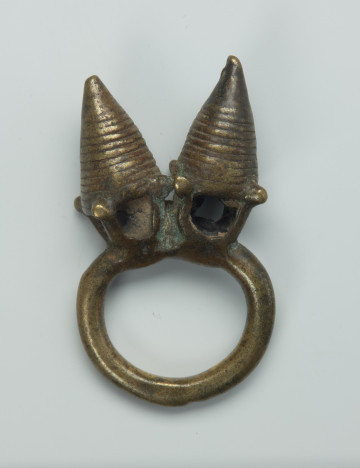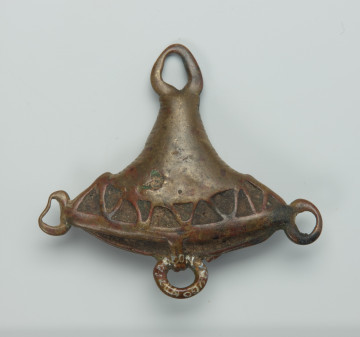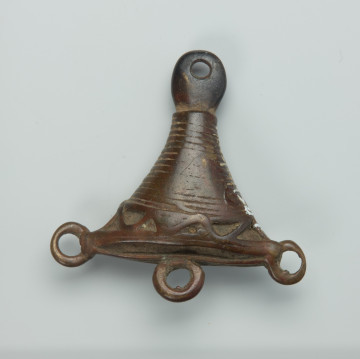
Ring
między 1951 — 2000
National Museum in Szczecin
Part of the collection: Collection of Dogonian art
The presented object resembles a pendant with bells attached to it, and Dogon people consider it a Tellem object. It was cast in bronze using the lost wax method. The artist first makes a wax prototype of the product, which is then covered with clay and fired in a kiln after drying. After it cools down, an empty clay mould remains, which he fills with liquid metal. The product is ready after the metal has solidified and the clay has been removed. In the 15th century, the region of the Bandiagara Escarpment was inhabited by the Tellem people. According to the oral tradition of the Dogon ‘(...) at a very remote time, the massif was inhabited by small red-haired people, fishermen and hunters who lived in bushes or rock hollows’. A study by Dutch archaeologists who excavated the Bandiagara cliffs in the 1960s concluded that the Tellems were not a low-growth people. There was very little likelihood that they were the ancestors of the Dogon or the peoples of Burkina Faso. It has been noted that the body of the Tellems somewhat resembles that of modern peoples living in the equatorial forests of Central Africa. It is thought that they may be descendants of forest-adapted groups that inhabited the western part of Sudan during the last humid climate phase.
Katarzyna Findlik-Gawron
Author / creator
Dimensions
cały obiekt: height: 8,1 cm, width: 4,6 cm
Object type
body adornment
Creation time / dating
Creation / finding place
Identification number
Location / status

między 1951 — 2000
National Museum in Szczecin

między 1951 — 2000
National Museum in Szczecin

między 1201 — 1500
National Museum in Szczecin
DISCOVER this TOPIC
National Museum in Szczecin
DISCOVER this PATH
Educational path